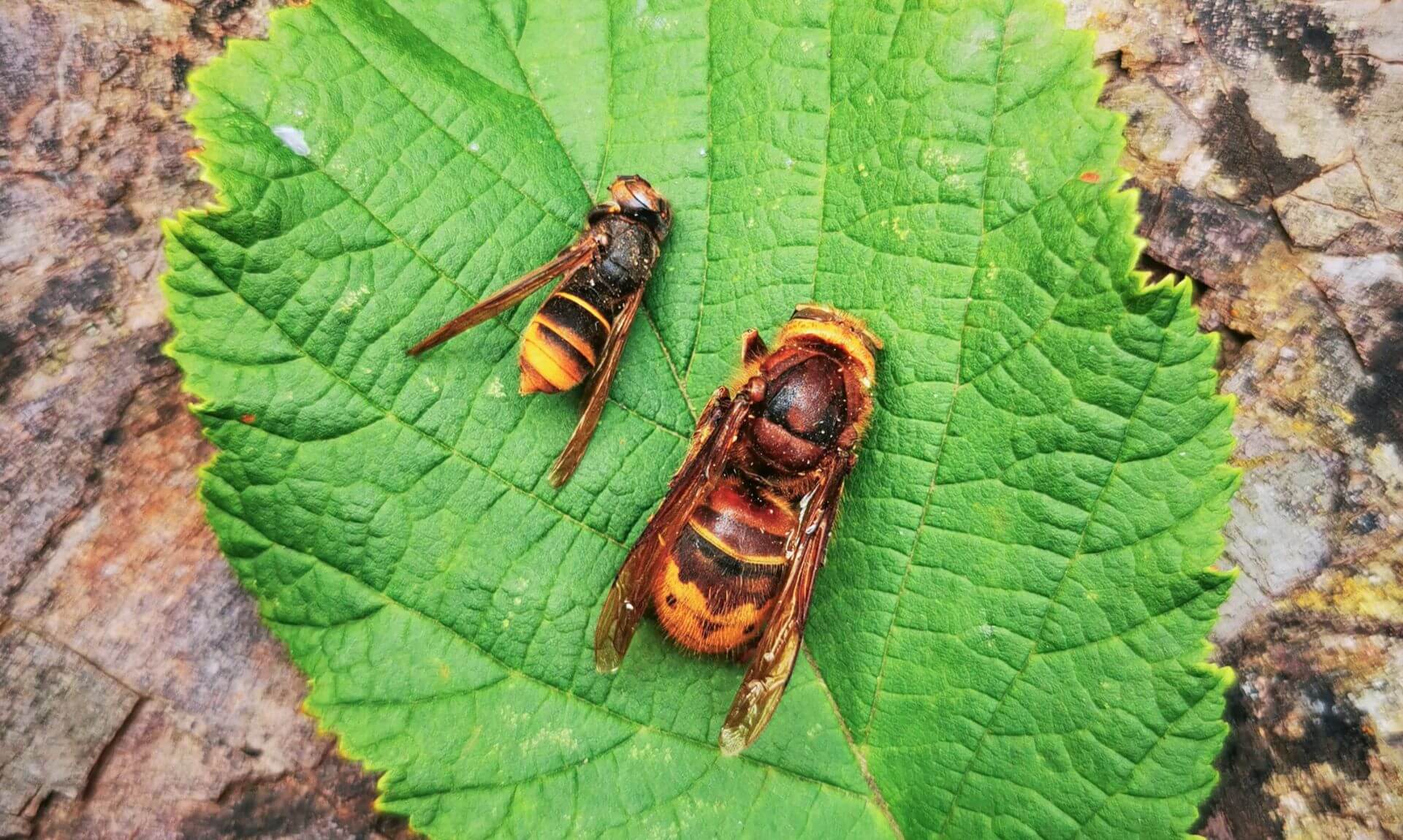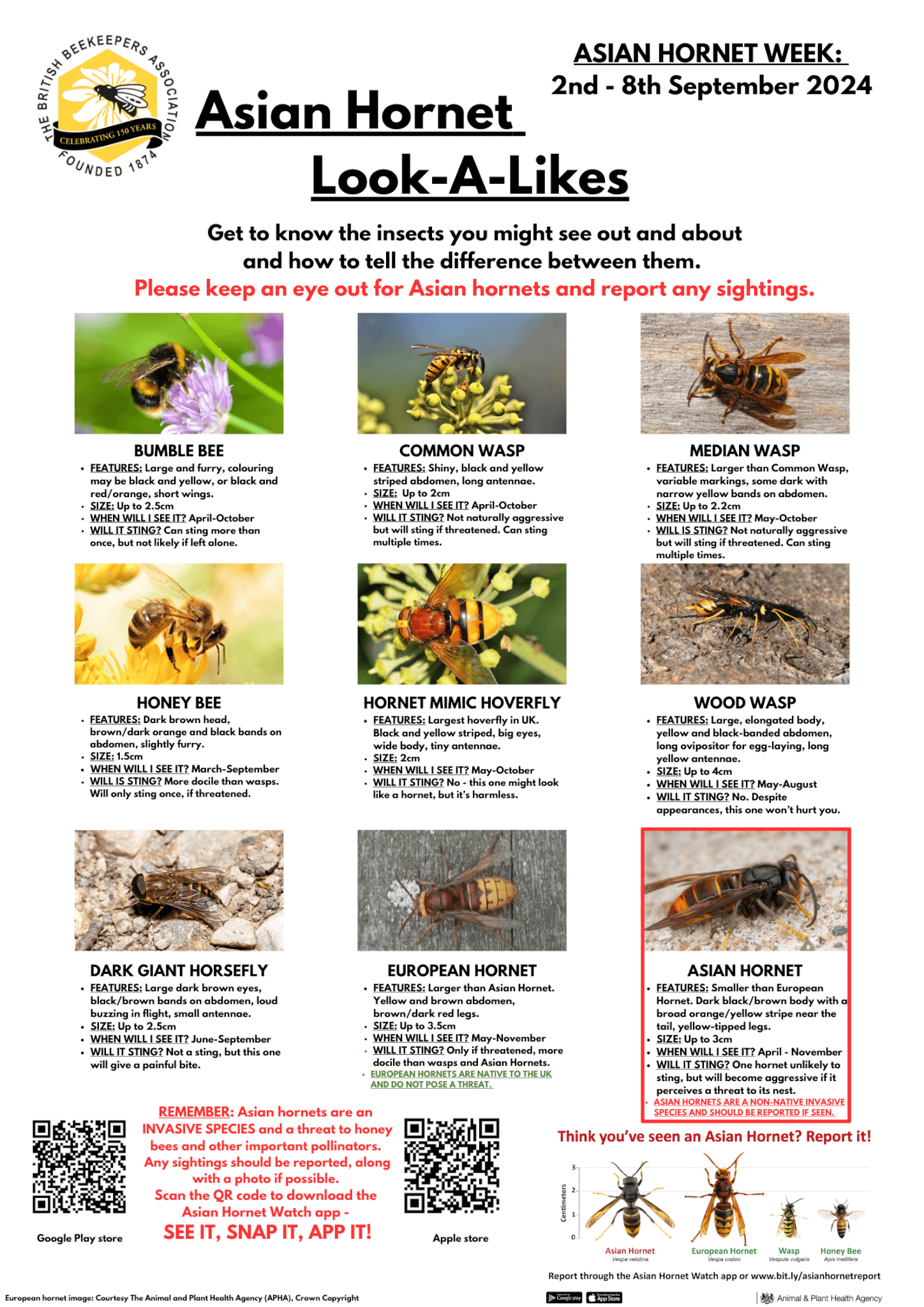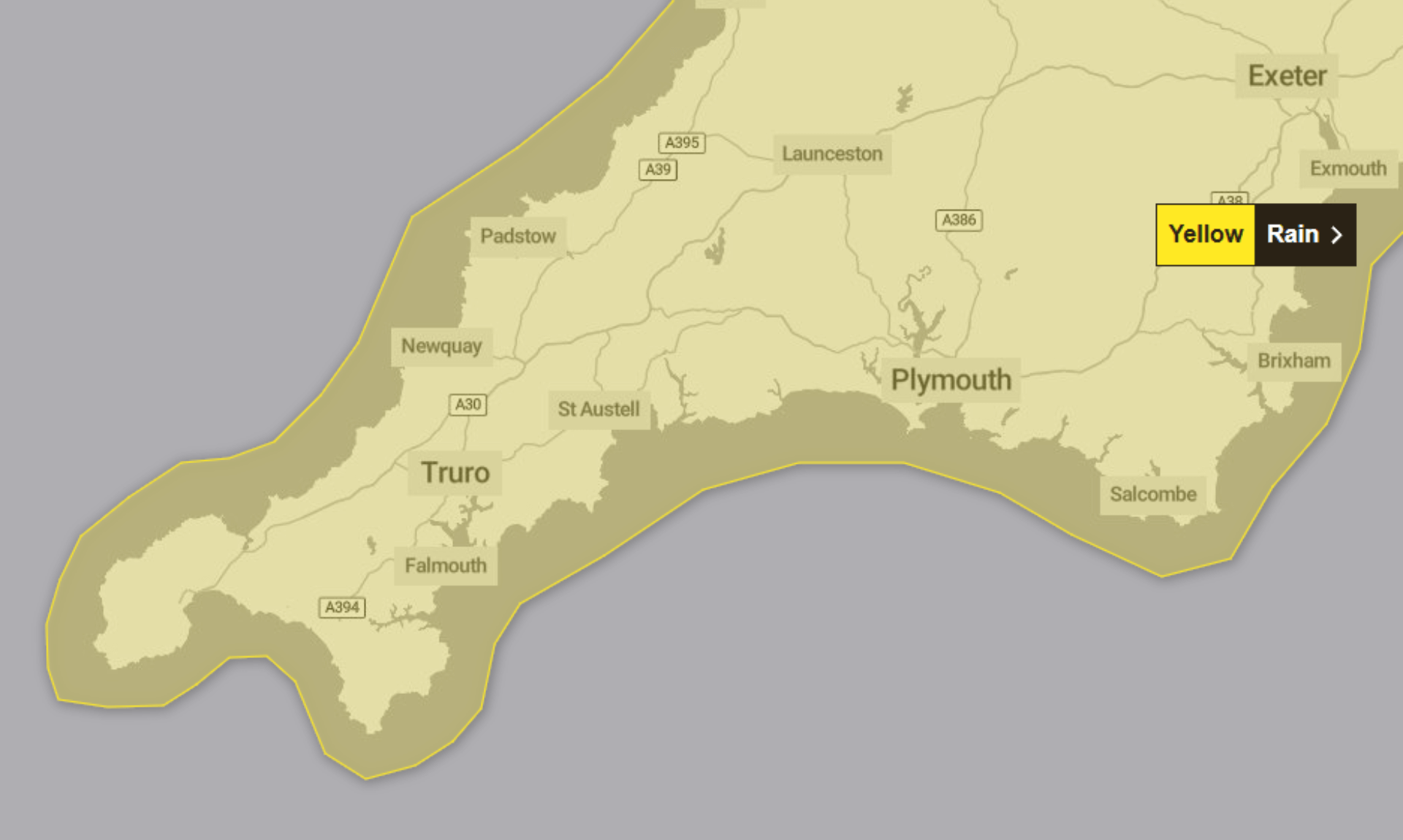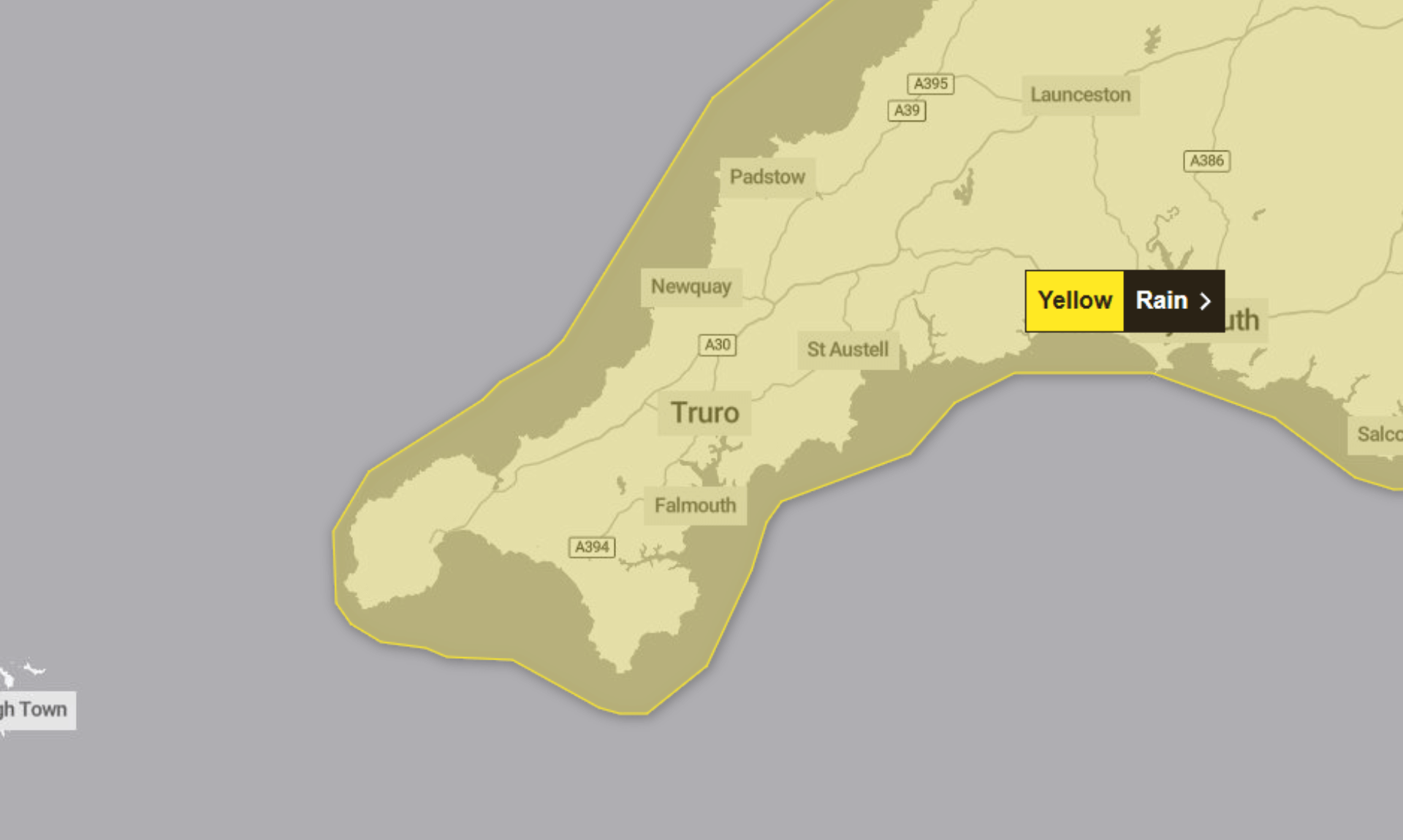Dangerous Asian Hornet Threatens South West: Public Urged to Report Sightings
Photo: An Asian hornet (left) alongside a native European hornet (right)
South West Water is joining forces with customers and visitors across the region to tackle the growing threat posed by the invasive Asian hornet. As part of Asian Hornet Week (2–8 September 2024), the company is encouraging people to stay vigilant and help protect the area’s vital natural pollinators.
A Rising Threat to Native Wildlife
First discovered in the UK in 2016, the Asian hornet—also known as the yellow-legged hornet—poses a serious risk to native bees and other pollinators. These non-native predators are known for targeting beehives and hunting around them. Their numbers have increased dramatically in the UK, particularly in 2023, and the public is being asked to step up efforts to help manage the spread.
With September being the peak time to spot the hornets, South West Water has been working with the public, hosting community roadshows to educate locals on how to differentiate between native hornets and the invasive Asian hornets.
How to Help: Spotting and Reporting Asian Hornets
In a bid to reduce their numbers, South West Water is urging members of the public to keep an eye out for these pests. People can report any suspected sightings using the Asian Hornet Watch app, which is available at the Non-Native Species Secretariat. Positive reports are followed up by a government-funded team that tracks and safely disposes of nests.
Kate Hills, Biosecurity and Invasive Species Manager at South West Water, explained the urgency of the situation: “The Asian hornet is a major threat to our native insects, so it’s really important that we play a part to monitor and manage the species, along with all of the great biodiversity work we do to benefit native wildlife.”
Coastal Areas Most at Risk
According to Kirsteen Thorne, Outreach Officer at the British Beekeepers Association, coastal areas such as Devon and Cornwall are especially vulnerable to rising Asian hornet populations. This is due to their tendency to enter the UK through ports and marinas.
“Correct identification is key to helping the authorities with their eradication programme,” Kirsteen said. She urged the public to become familiar with the appearance of the Asian hornet and report any suspected sightings via the app.
Asian hornets are not only a danger to pollinators but can also pose a health and safety risk to humans. More territorial and aggressive than native hornets, it’s crucial that any nests found are dealt with swiftly to minimise harm.
With public involvement crucial to the success of the eradication effort, South West Water is asking as many people as possible to download the app and contribute to the protection of local biodiversity.

Photo: An Asian hornet (left) alongside a native European hornet (right)
Share This Story, Choose Your Platform!
To keep up with the latest cornish news follow us below
Follow CornishStuff on Facebook - Like our Facebook page to get the latest news in your feed and join in the discussions in the comments. Click here to give us a like!
Follow us on Twitter - For the latest breaking news in Cornwall and the latest stories, click here to follow CornishStuff on X.
Follow us on Instagram - We also put the latest news in our Instagram Stories. Click here to follow CornishStuff on Instagram.
You Might Also Be Interested In
Don’t Miss What’s Happening in Cornwall
Join others in Cornwall by receiving the latest daily news in Cornwall, sent direct to your inbox.




























